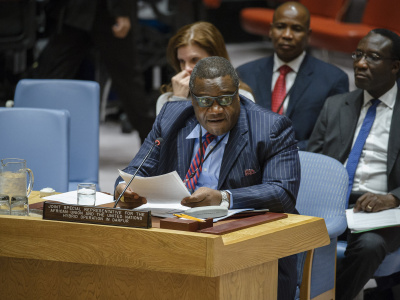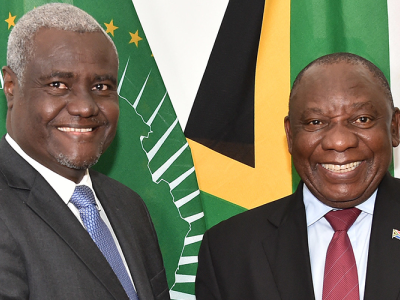
Merging peace and politics: Drivers, dilemmas and options for the AU’s new governance setup
The merger of the African Union Commission’s peace and security department and its political affairs department is one of the most prominent changes that AU reform has delivered. Martin Ronceray, Lidet Tadesse Shiferaw and Ueli Staeger look at how to make the merger a success from a governance perspective.
Summary
The merger of the African Union Commission’s Department of Peace and Security and its Department of Political Affairs is one of the most prominent changes that African Union (AU) reform has delivered. Subscribing to a global trend of adopting more integrative approaches to conflicts and their political causes, the merger yields potential for streamlined AU action. This paper identifies three possible scenarios of how the African Governance Architecture (AGA) might fare in the merged Department of Political Affairs, Peace and Security (PAPS). AGA might see marginalisation, magnification or simply more of the same. Arguing that a stronger AGA through magnification is desirable, the paper analyses how different drivers of the security-governance merger – such as institutional complexity, ambivalent conceptions of ‘governance’, a clash between non-indifference and sovereignty, AU leadership and international partners – jointly account for a situation where the governance agenda risks being sidelined compared to the AU’s peace and security activities. Making the merger a success from a ‘governance’ perspective will depend on fine-tuning institutional arrangements to: leave space for AU leadership to take hold, prevent new governance-security silos emerging, and rapidly deliver a few AGA quick wins through election observation, mediation and early warning. Separately, stakeholders can help enhance political traction by establishing a new governance narrative that factors in member states’ concerns, with AGA ‘doing less, but better’. Finally, the magnification of governance requires fine-tuned external funding partnerships to support PAPS without constraints, and substantive partnerships with international and civil society organisations that enhance the department’s operational capacity.






